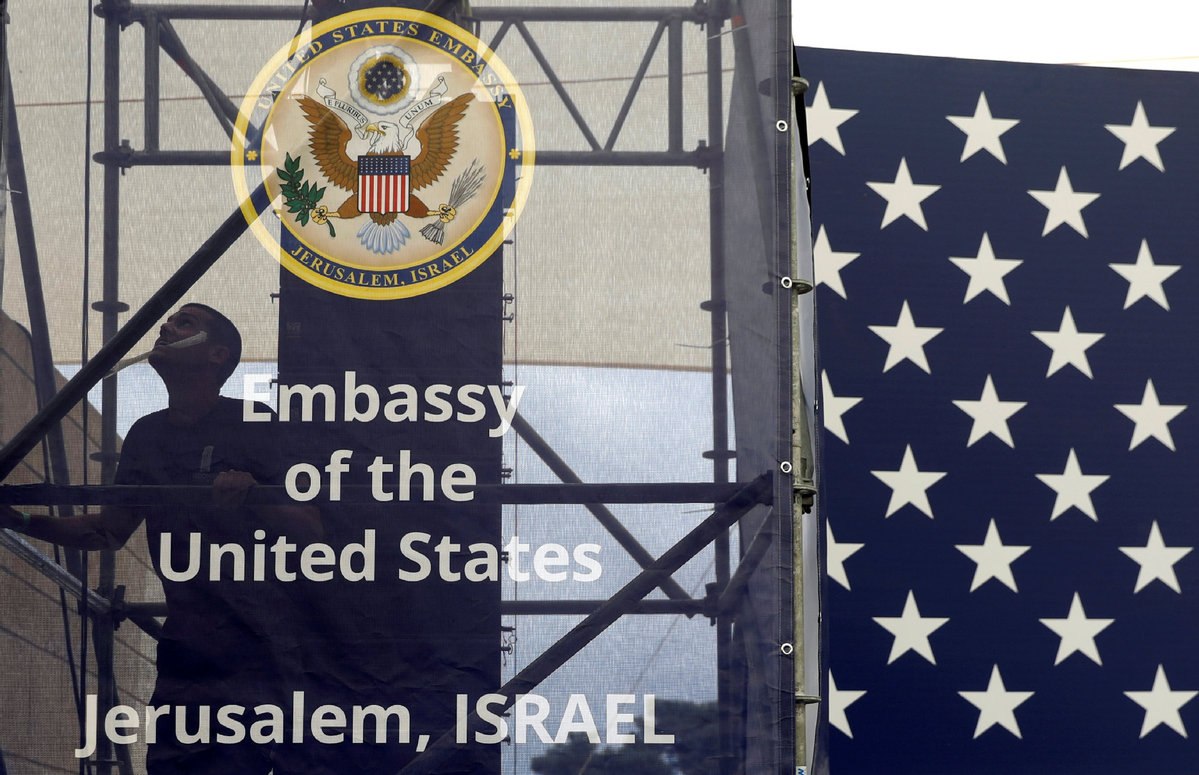'America first' hobbles global leadership of US: China Daily editorial
chinadaily.com.cn | Updated: 2018-05-14 19:35

Since Donald Trump took office in January, 2017, there has been much speculation about the direction of US policy in the Middle East. Now it has begun to take shape and it spells ill for the region.
With the US president announcing he was withdrawing the United States from the Iran nuclear deal last week, and the US opening its new embassy in Jerusalem on Monday, the ire in the region has grown.
If previous US governments tried hard to shore up the US image as an impartial mediator of the Israeli-Palestinian conflict — despite the long tradition of close US-Israeli ties — the pendulum of the current Trump administration has ultimately swung fully in favor of Israel.
Now that the divisions in the Middle East are deepening, Trump is looking to take advantage of these to fish for US interests in the region through its alliance with Israel.
A similar motivation prompted Trump to tear up the Iran nuclear deal, as he sees Teheran’s rising influence in regional affairs as an increasing threat to the US interests and influence in the region. Obviously, Trump’s new Middle East policy bears every hallmark of all his other actions, that is undoing whatever his predecessor did and putting America first, never mind the consequences for others.
However, Trump may have underestimated the sensitivity of the Jerusalem issue. History shows Jerusalem is one of a few issues that can rally all Muslim countries against the US despite their differences and disputes.
By unilaterally changing the status quo of the Jerusalem issue, the Trump administration is further intensifying the enmity between the entire Muslim world and Israel and pushing the Palestinians and Israelis into another vicious circle of violence and bloodshed. In the worst-case scenario, as some have already warned, the US move could even lead to war.
Such unilateral policies, which have become the mainstay of the Trump administration’s foreign policy, undermine the very spirit of diplomacy, multilateralism and international cooperation. To some extent, Trump is pushing the US self-centeredness to the extreme — the devil take the rest.
From the Paris climate change pact to the Jerusalem issue and the Iran deal, Trump seems intent on proving the US is unable or unwilling to play a responsible and constructive role in world affairs.
If the US continues to shrug off the responsibilities of power and continues to pursue narrow-minded interests, it is only natural that more and more people will turn their backs on its leadership.
























